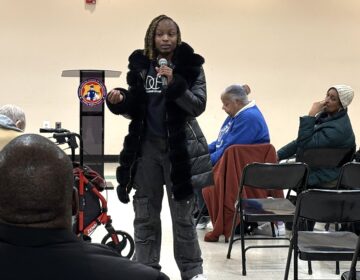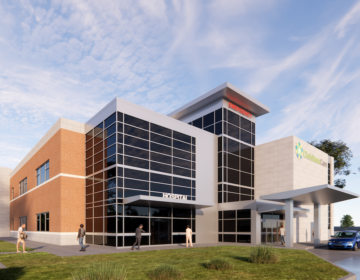Innovative healthcare conference focuses on young adults with special needs
Close to 200 people, including doctors, nurses, patients and their parents, gathered on Christiana Hospital’s Newark campus Friday for a first-of-its-kind conference.
Co-sponsored by A.I. Dupont Hospital for Children and Christiana Care, the day-long event focused on the growing community of children with special health care needs who are transitioning to adulthood.
Doctors define “special needs” as anything from diabetes and cerebral palsy to Down’s syndrome.
Because of all of the advances in medicine, the survival rate of these individuals has increased exponentially.
“This is a problem because we’ve done such a great job in pediatrics… so maybe adult providers didn’t need to worry about things like what to do with a 30-year-old with cystic fibrosis,” said Dr. Rita Meek, a pediatric oncologist with A.I. Dupont, as well as an organizer of Friday’s conference.
She says caring for transitioning adults is a rapidly growing concern citing 14 percent of children nationwide have special health care needs. Of those, 90 percent survive to become adults.
“When they get to the adult world of healthcare it’s very different and many families and patients are not prepared for that,” said Dr. Meek.
Abigail Morrison suffers from cerebral palsy, a condition that affects brain and nervous system functions including movement and learning. Now 20 years old, Abby is preparing to move on from A.I. Dupont, having been in their care since she was five, but is nervous about the transition.
“I think that the difference between adult care and pediatric care is the special care taken, especially when you’re in the hospital and, you know, making you feel special and comfortable and everybody just bends over backwards to do their best for you. And I think that while some adult providers can do that, that’s more in the pediatric world,” said Abby.
“These patients frequently are not able to be autonomous. They need their parents or family to be involved. And many of these parents, and family members and patients have never been expected to do a lot of self-management of care because in pediatrics… we really facilitate that we are going to help them make all these things happen,” explained Dr. Meek.
In Abby’s case, mom Holly Morrison said Abby has a team of specialists working with her at A.I. Dupont who know her idiosyncrasies, her anxiety issues and treat her looking at the whole picture. Whereas, Holly worries, adult providers might not. Holly wishes there was some way to link the two sides.
“If we can have a conversation to facilitate between the two of them, I think that would be very important,” said mom Holly.
Dr. Meek says lack of communication, or lack of some type of electronic record or database tracking these special needs patients for adult care physicians and specialists down the road, is one of many barriers in the transition process. But Dr. Meek hopes Friday’s conference can serve as a first step in what she hopes will be an ongoing dialogue that will ultimately lead to statewide, even nationwide, changes.
“One hope I had was that we would begin to network across disciplines and also within disciplines,” said Meek. “The bottom line is what I’m hoping to accomplish is to raise awareness, to begin to show that we need to integrate all of these different disciplines that are concerned about the problem in a more effective way.”
WHYY is your source for fact-based, in-depth journalism and information. As a nonprofit organization, we rely on financial support from readers like you. Please give today.




